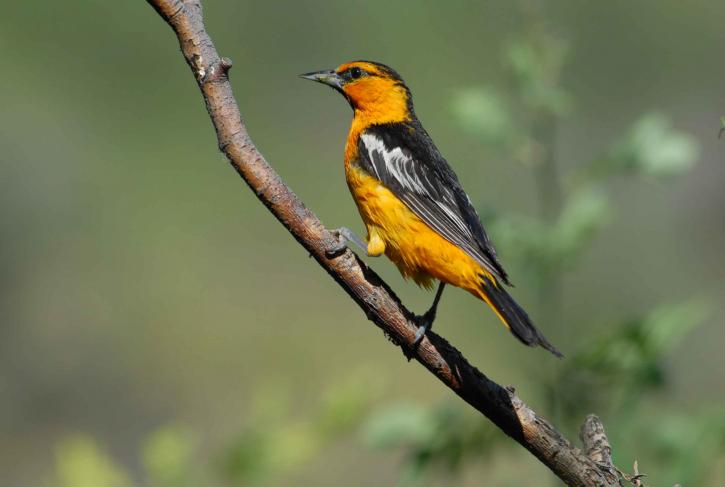![[photo, Baltimore oriole in full breeding plumage]](http://msa.maryland.gov/msa/mdmanual/01glance/symbols/images/i004448a.jpg)
Just a few steps from my desk here at the Cornell Lab of Ornithology, a tall cabinet holds 800 stuffed reminders of how difficult it can be to define the exact boundaries between bird species.
These specimens are hybrids between what we now know as the Baltimore Oriole (which breeds in eastern North America) and Bullock’s Oriole (which breeds in the West). In between, Baltimore and Bullock’s Orioles meet up and interbreed in the cottonwood-lined corridor formed by the Platte River valley in Nebraska. In the 1950s, a team of Cornell scientists—motivated by then-new ideas about what hybridization might mean for how we define bird species—traveled along the Platte collecting specimens of orioles and other birds along the way. This project from more than a half-century ago is the origin of our cabinet of oriole hybrids, drawer after drawer of expertly prepared specimens in a Day-Glo range of yellows and oranges.

One of the principal findings of that original oriole study was that hybridization is fairly common in these Nebraska orioles.
No doubt, but naming a new species probably offer much more cachet than identifying a hybrid.
In fact, birds tend to hybridize a lot; more than 10 percent of all bird species have been known to hybridize at least once. So there are many examples to study, each with attributes that can tell us a bit more about the overall process of speciation by which all biodiversity is generated. More.
It’s reasonable to suspect that more than 10 percent of bird species hybridize.
What if hybridization proves a key survival strategy for overlapping groups of birds that are not best described firmly as separate “species”? Detailed information could help us minimize the effects of unavoidable loss of habitat. At a certain point, the Darwinian species concept is merely in the way, and a more rigorous genomic approach is needed.
See also: Genomics is upsetting the classification of bird species Why is it taking so long to organize claims about speciation in manner worthy of science?
Nothing says “Darwin snob” like indifference to the mess that the entire concept of speciation is in
and
Life continues to ignore what evolution experts say